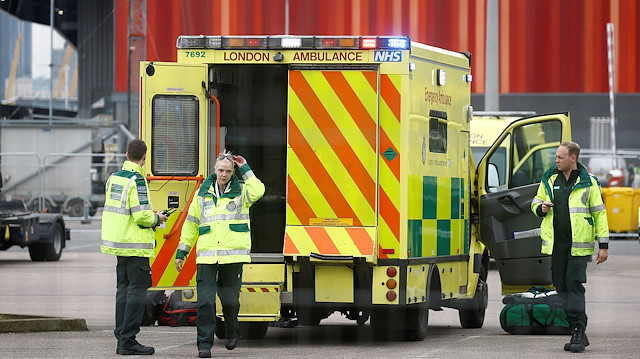
UK likely to be certainly one of the worst, if not the worst affected country in Europe, says British expert
British health authorities announced on Sunday that the U.K.-wide death toll from coronavirus rose 737 in 24 hours, taking the overall number over 10,000 deaths.
The Department of Health reported: “282,374 people have been tested of which 84,279 tested positive.
“As of 5pm on 11 April, of those hospitalised in the UK who tested positive for coronavirus, 10,612 have sadly died.”
Sir Jeremy Farrar, director of the Wellcome Trust, a biomedical research charity, and a member of the government’s Scientific Advisory Group for Emergencies, told the BBC: “Numbers in the UK have continued to go up… The UK is likely to be certainly one of the worst, if not the worst affected country in Europe.”
At the daily press conference, Health Secretary Matt Hancock announced that a new National Health Service app will be able to tell users if they have been near someone ill with coronavirus.
Earlier in the day, Prime Minister Boris Johnson was discharged from hospital after a week of treatment for coronavirus, including three nights in intensive care.
Alongside a video posted on Twitter Sunday, he wrote: “It is hard to find the words to express my debt to the NHS for saving my life.
“The efforts of millions of people across this country to stay home are worth it. Together we will overcome this challenge, as we have overcome so many challenges in the past.”
“Although we mourn every day those who are taken from us in such numbers, and though the struggle is by no means over, we are now making progress in this incredible national battle against coronavirus,” he said in the video.
“A fight we never picked against an enemy we still don’t entirely understand,” he added.
His fiancé Carrie Symonds tweeted: “I cannot thank our magnificent NHS enough. The staff at St Thomas’ Hospital have been incredible. I will never, ever be able to repay you and I will never stop thanking you.”
Parliament is closed for its yearly Easter recess, but this year the break took place sooner due to the coronavirus outbreak.
There have been calls from opposition parties for an emergency recall of parliament, but a spokesman for the leader of the House of Commons, Jacob Rees-Mogg, confirmed on Sunday that parliament would reconvene on April 21 as originally agreed by MPs before the Easter recess.
Rees-Mogg said: “Parliament will return on 21 April to fulfill its essential constitutional functions of conducting scrutiny, authorising spending and making laws.
“In these unprecedented times, technological solutions have already been implemented for select committees and options are being prepared for the Speaker, the government and other parties to consider next week."
Sir Keir Starmer, recently elected leader of the main opposition Labour Party, welcomed the use of technology in reconvening parliament, saying: “It’s very important in a crisis like this that parliament is sitting so decisions must be scrutinised.”
Since appearing in China last December, the novel coronavirus has spread to at least 185 countries and regions.
Data compiled by the U.S.-based Johns Hopkins University shows that worldwide infections have reached 1.8 million, with the death toll passing 110,000.


